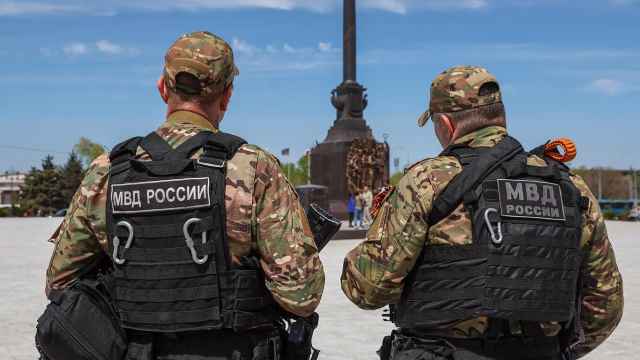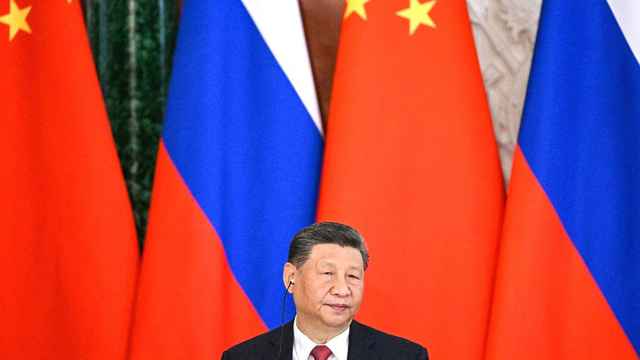
Matvey Kaploukhiy
Partner, Corporate / M&A, Goltsblat BLP*
Why have Russian law shareholder agreements gained momentum recently? Some companies (primarily state-linked ones) had followed this route long before the Civil Code was reformed and the first amendments concerning shareholder agreements were introduced into specialised laws. Yet the political environment has now changed: the deoffshorisation law has given a fillip to JV establishment within Russia. A second factor consists in the sanctions: for companies not permitted to conduct business with foreigners, establishing a holding company in a European jurisdiction can no longer be considered an option. Finally, there is now a marked trend, especially among major state-owned or state-linked companies, favouring establishment of joint ventures in Russia.
An interesting point here is that, when a JV is established in Russia, a foreign law, such as English law, may be chosen (for example, a shareholder agreement between shareholders in a Russian legal entity may be made under English law). Even so, when we analyse the different structures, we usually find this to be inadvisable. In other words, English law is a very good tool but only if you are establishing a holding company abroad, so the shareholder agreement is concluded under English or any other foreign law to which the parties are accustomed. It is probably unreasonable to choose English law with respect to a Russian company for one very simple reason: corporate disputes are likely to remain exclusively within the competence of Russian state arbitration courts (commercial courts) in the short-term. So, even if Russian courts accept English law agreements, they will, essentially, be obliged to apply corporate rules of the Russian legislation. In addition, they will have the additional burden of investigating the English law specifics. You can see that, if a potential dispute between JV participants is to be considered in Russia, the choice of English law would be likely to result in worse consequences than the choice of Russian law, even though it might be somewhat uncertain.
English law may still be applied when the majority of obligations within the agreement are assumed by a foreign partner. The logic is quite simple here: if it is an English law shareholder agreement and the foreign partner is liable for all key obligations, then the foreign partner is the party that will most probably breach the shareholder agreement, so will be the defendant in any potential court dispute. If the shareholder agreement includes an arbitration clause that specifies proceedings under LCIA rules, for example, any claim against the foreign partner will be lodged with the LCIA. In any proceedings under LCIA rules as a result of breach of the shareholder agreement, it is recovery of damages that is likely to be the subject of the award. Yet, since the company is a foreign one, the award will be enforced not in Russia but in the jurisdiction in which your contracting party is registered. Consequently, you will step into that jurisdiction and will probably have a good chance of recovering damages from the foreign company by having the award enforced abroad.
Conversely, once you recognise that you will have to deal with any potential dispute in Russia, the logic behind choosing English law evaporates, since you would still have to proceed under LCIA rules. Moreover, in Russia, the arbitration award may well not be recognised because a corporate dispute falls within the sole competence of the Russian courts. Turning to shortcomings in Russian law, the first and most obvious is uncertainty over how courts will interpret all these newly available tools. Any businessman or company will inevitably, when taking any any serious decision, have to assume the risk of this uncertainty. I believe, however, that in the next ten years this risk will become secondary, since there are now a lot of Russian joint ventures, disputes will inevitably occur and practice will develop.
The second and just as important shortcoming is that we do not have standard models to apply for writing shareholder agreements. In England, for example, there are well-established standards for drafting documents and lawyers do not quibble about how to lay down an option or indemnity. They argue instead over commercial matters and issues that need to be specified in legal wording. They do not usually need to debate how to write down the wording correctly on paper. This saves clients' considerable time.
What should be the focus of a shareholder agreement?
This has led to some confusion: some say 'warranties' and others say 'representations'. But reassurance of facts is warranties. What is called 'representations' under English law is described in Articles 178-179 of the Civil Code: conclusion of a transaction made under the influence of fraud or misapprehension. These articles are slightly extended under the Civil Code reform and apply as a fairly close equivalent to the English 'representations'. For instance, during preparations for a transaction, certain promises are given to one party, which, relying on these, concludes the transaction. These promises eventually turned out to be false. In this situation, the transaction may be challenged. This is a classic representation. The shortcoming in the Russian legislation is that, while under English law you may clearly specify in a contract that you exclude representations, under Russian law you may not formally do so.
Nevertheless, we recommend in any situation that you try to strike out these representations when drafting an agreement, while retaining only the reassurance of facts. How should this be done? I believe it is better to specify in an agreement that the party 'hereby confirms that all the assertions set out in the agreement or a separate appendix are reassurances of facts' rather than representations inducing the party to conclude the transaction. In this event, there is a chance that a court might accept this position and state that these are contractual terms rather than circumstances that induced you to conclude the transaction. This is an area, however, where judicial practice needs to be developed. We have, as a general document, a resolution by the Supreme Commercial Court about freedom of contract; I believe a generally accepted concept of freedom of contract, should it be supported by the Supreme Court, means that courts will support the opportunity for the parties to negotiate and decide independently that, if a specific reassurance of facts is breached, they will rely only on damages as a remedy rather than on rescission of the transaction. A second and very important issue is where to specify the reassurance of facts within a JV shareholder agreement. Here, we are not considering the basic reassurance of facts related to all corporate powers but only and specifically establishment of a joint venture to which assets are then contributed. An investor may then purchase a share in a company that already has certain assets. The crucial point here is the reassurance of facts related to these assets and it is very important to understand in which document the reassurance of facts is to be specified, since this will affect calculations and amounts of damages.
First, it might be a shareholder agreement, which is, essentially, a JV foundation agreement. It sets out that a certain company with assets and, consequently, warranties related thereto, is established.
Second, it might be an agreement formalising asset transfer. This is usually called a subscription agreement in the case of a company that is already trading.
Third, an investor buys into a company and the existing shareholders sell part of their stake. Consequently, a shareholder selling part of its stake must provide warranties in this agreement that it is selling the shares with respect to a company possessing certain assets.
In general, I recommend setting out the reassurance of facts in the agreement that deals specifically with the transfer of assets. For instance, in the event of an additional share issue, the reassurance of facts should be included in the subscription and shareholder agreements in particular.
* Goltsblat BLP is the Russian practice of Berwin Leighton Paisner (BLP), an award-winning international law firm headquartered in London and with offices operating in major commercial and financial centres throughout the world — Moscow, Abu Dhabi, Beijing, Berlin, Brussels, Dubai, Frankfurt, Hong Kong, Paris and Singapore.
The firm has a team of 100 Russian, English and US law qualified lawyers based in Moscow and over 800 lawyers in the other international offices.
Goltsblat BLP currently has over 700 clients among the major international investors operating in Russia, including 23 Fortune 500 companies.
www.gblplaw.com Tel: +7 (495) 287 44 44 e-mail: [email protected]
The Legal Highlights section does not involve the reporting or the editorial staff of The Moscow Times.
A Message from The Moscow Times:
Dear readers,
We are facing unprecedented challenges. Russia's Prosecutor General's Office has designated The Moscow Times as an "undesirable" organization, criminalizing our work and putting our staff at risk of prosecution. This follows our earlier unjust labeling as a "foreign agent."
These actions are direct attempts to silence independent journalism in Russia. The authorities claim our work "discredits the decisions of the Russian leadership." We see things differently: we strive to provide accurate, unbiased reporting on Russia.
We, the journalists of The Moscow Times, refuse to be silenced. But to continue our work, we need your help.
Your support, no matter how small, makes a world of difference. If you can, please support us monthly starting from just $2. It's quick to set up, and every contribution makes a significant impact.
By supporting The Moscow Times, you're defending open, independent journalism in the face of repression. Thank you for standing with us.
Remind me later.





